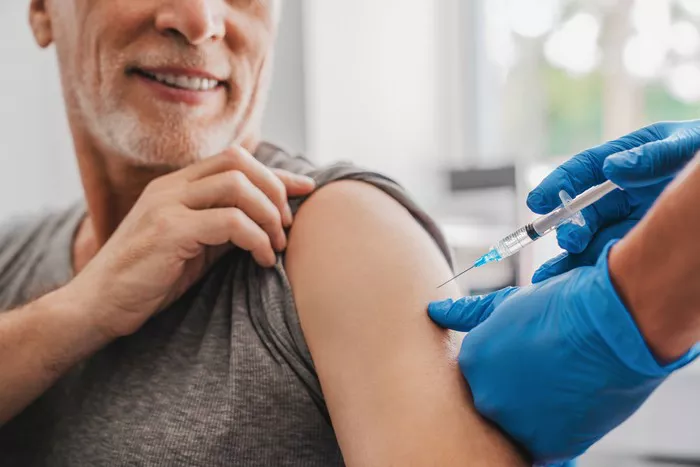Shingles, caused by the varicella-zoster virus, is a painful and potentially debilitating condition that affects millions of people worldwide, particularly those aged 50 and older. To prevent the onset or mitigate the severity of this condition, vaccination against shingles is recommended by healthcare professionals. However, like any medical intervention, the cost of obtaining a shingles shot can vary depending on several factors. Understanding these factors can help individuals make informed decisions about their healthcare expenditure. In this article, we explore the intricacies of shingles vaccination costs, factors influencing pricing, and potential avenues for financial assistance.
The Cost Landscape of Shingles Vaccination
The cost of a shingles shot primarily comprises the price of the vaccine itself, administration fees, and any associated medical consultation charges. Additionally, factors such as the type of vaccine, healthcare provider, insurance coverage, and geographical location can significantly influence the final expense.
1. Vaccine Cost:
Currently, two vaccines are approved by the U.S. Food and Drug Administration (FDA) for the prevention of shingles: Shingrix and Zostavax. Shingrix, considered more effective than Zostavax, typically comes with a higher price tag. On average, the cost of a single dose of Shingrix can range from $150 to $200, while Zostavax may cost slightly less, ranging from $100 to $150 per dose.
2. Administration Fees:
Healthcare providers may charge additional fees for administering the vaccine. These fees can vary depending on the setting where the vaccination takes place, such as a doctor’s office, pharmacy, or clinic. Generally, administration fees can add anywhere from $20 to $50 or more to the total cost.
3. Consultation Charges:
Some healthcare providers may require a consultation or evaluation before administering the vaccine, especially for individuals with underlying health conditions or those seeking advice on vaccination. Consultation charges can vary widely, ranging from nominal fees to more substantial costs, depending on the provider and the extent of the consultation.
4. Insurance Coverage:
Insurance coverage plays a significant role in determining out-of-pocket expenses for shingles vaccination. Many health insurance plans, including Medicare Part D and most private insurance plans, cover the cost of shingles vaccination, either partially or in full. However, coverage details, including copayments, deductibles, and coverage limitations, vary widely among insurance plans. It is essential for individuals to review their insurance policy or consult with their insurance provider to understand their specific coverage for shingles vaccination.
5. Geographical Location:
The cost of healthcare services, including vaccinations, can vary depending on the region or locality. Urban areas with higher living costs may have slightly higher prices for shingles vaccination compared to rural areas. Additionally, healthcare providers in different regions may set different pricing structures based on local market dynamics and competition.
Factors Influencing Pricing
Several factors influence the pricing of shingles vaccination, making it essential for individuals to consider various aspects when estimating their out-of-pocket expenses:
1. Type of Vaccine:
As mentioned earlier, the choice between Shingrix and Zostavax can impact the overall cost, with Shingrix generally being more expensive but also more effective.
2. Healthcare Provider:
The setting where the vaccination is administered—whether it’s a doctor’s office, pharmacy, clinic, or community health center—can affect pricing due to differences in overhead costs and pricing strategies.
3. Insurance Coverage:
Individuals with comprehensive insurance coverage may have lower out-of-pocket expenses compared to those without insurance or with limited coverage. Understanding the terms of insurance coverage is crucial for accurately estimating costs.
4. Financial Assistance Programs:
Some pharmaceutical companies offer patient assistance programs or discounts for eligible individuals who cannot afford the full cost of vaccination. These programs aim to make vaccines more accessible to those in need and can significantly reduce out-of-pocket expenses.
5. Government Programs:
Government-sponsored healthcare programs such as Medicare, Medicaid, and the Vaccines for Children Program (VFC) may provide coverage or subsidies for shingles vaccination for eligible individuals, particularly those in vulnerable populations.
Navigating Costs: Strategies for Affordability
While the cost of shingles vaccination can be a concern for some individuals, several strategies can help make it more affordable:
1. Check Insurance Coverage:
Reviewing insurance coverage and understanding the extent of coverage for shingles vaccination can help individuals anticipate their out-of-pocket expenses accurately.
2. Explore Financial Assistance Programs:
Investigate patient assistance programs offered by pharmaceutical companies and government-sponsored programs that provide subsidies or discounts for shingles vaccination.
3. Compare Prices:
Research pricing options from different healthcare providers, including pharmacies, clinics, and community health centers, to find the most cost-effective option.
4. Consider Timing:
Some healthcare providers may offer promotions or discounts during certain times of the year. Planning vaccination around these opportunities can help reduce costs.
5. Discuss Options with Healthcare Providers:
Open communication with healthcare providers about financial concerns can lead to alternative solutions or payment plans that accommodate individual circumstances.
Conclusion
The cost of obtaining a shingles shot can vary depending on multiple factors, including the type of vaccine, healthcare provider, insurance coverage, and geographical location. While the expense may be a consideration for some individuals, various strategies, such as exploring insurance coverage, financial assistance programs, and comparing prices, can help mitigate costs and make shingles vaccination more affordable. Ultimately, the long-term benefits of vaccination in preventing or reducing the severity of shingles and its complications often outweigh the upfront expenses, making it a valuable investment in one’s health and well-being.

























